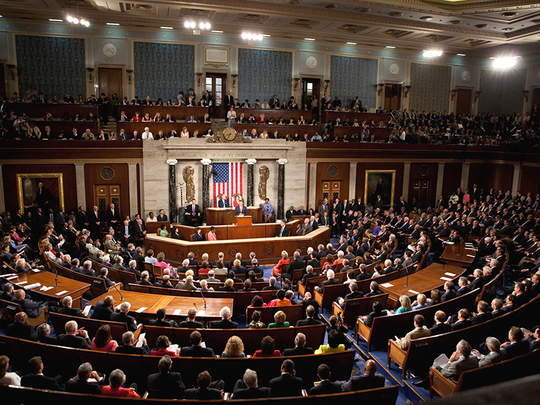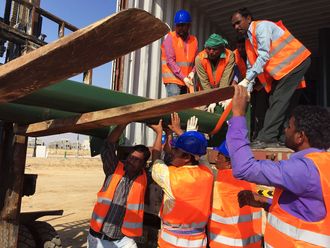
Washington: It’s a hard scene to imagine, a foreign statesman answering before a New York court for the 9/11 attacks, but a new US law threatens to become a Pandora’s Box of diplomatic crises.
Congress passed the Justice Against Sponsors of Terrorism Act, overcoming President Barack Obama’s veto, to help the relatives of victims of the September 2001 outrage seek compensation.
But in doing so they struck a blow against sovereign immunity, a previously sacrosanct principle in international relations, and disturbed diplomatic ties with US allies and foes alike.
If Saudi officials can be pursued in US courts for alleged support of bombers, could American officials or soldiers face justice abroad for past or future actions in the field?
And if an old ally like Saudi Arabia could find itself in a US judge’s crosshairs, what of other friends with even closer diplomatic, military and economic ties in Europe or Asia?
The law, however, is now the law even if just last week US Secretary of State John Kerry said it “unintentionally, I think ... puts our country at great risk”.
Kerry, who was speaking after talks with Saudi Arabian foreign minister Adel Al Jubair, said they had discussed ways “to fix this” without going into detail.
His spokesman later said the administration would work with Congress to advise how the law could be reformed in letter or application — but it is far from clear how this would work.
“Where sovereign immunities are diluted, the international system becomes chaotic, and no country and no government is able to conduct its official business,” Al Jubair warned.
Meanwhile, some British, French and Dutch lawmakers have threatened retaliatory legislation to allow their courts to pursue US officials, threatening a global legal domino effect.
The text of the Jasta law does not mention Saudi Arabia, but the law’s champions made it clear that its intent is to allow plaintiffs to seek damages for the September 11 attacks.
Official US investigations into the attacks ordered by Saudi-born Al Qaida leader Osama Bin Laden found no evidence that the kingdom had directly sponsored the onslaught.
But 15 of the 19 hijackers were Saudi, some met with Saudi officials before taking part, and some Saudi private citizens are believed to have donated to Al Qaida.
Some of the relatives of the dead think they have a case, and some US lawyers and politicians are keen to give them their day in court — whatever the international fallout.
Saudi interests lobbied hard against the Jasta legislation but, even with Obama and Kerry also firmly opposed to its passage, lawmakers sided with public support for the victims.
Saudi Arabia, which sees itself as the US partner in a hostile region, was outraged.
“Saudi Arabia is a victim of terrorism as much as the United States is, and by the same terrorist groups,” said Prince Turki Al Faisal, who was head of Saudi intelligence until 10 days before the attacks.
By passing Jasta, Faisal told a Washington conference last week, Congress “has accomplished the terrorist aim of hammering a wedge into the heart of the US-Saudi relationship”.
Faisal reassures himself the 70-year-old US-Saudi alliance is “too big to fail,” but Jasta is on the books and some here have begun to imagine extreme but now plausible scenarios.
It means that a statesman accused under the law can be hauled into court in New York and interrogated by an attorney, said Bernard Haykel, professor of Near Eastern Studies at Princeton. If the statesman does not show up, he added, there could be judgement against his or her country.
Such a result would be a blow to relations at any time, but US-Saudi ties are at a low, fed by Obama’s hands-off approach to Syria and his nuclear accord with Saudi foe Iran.
“And this legislation seems to be the icing on the cake,” said Haykel, warning that the kingdom and other US allies would see Jasta as confirming Washington’s abandonment of its friends.
And the crisis could spread beyond the already chaotic Middle East should Jasta provoke retaliatory legislation elsewhere.
The European Union has already warned that some of its members are thinking this way, and reports suggest the Gulf states, Turkey, Japan, Jordan, Pakistan and Iraq may follow.
“It’s very, very close long-term allies of the United States who are disturbed,” scholar Hussain Ibish told the conference, dubbing the law a “Pandora’s Box” of diplomatic disasters.











